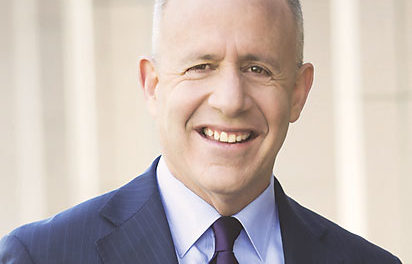You Decide
3 ballot measures may test your patience
By Craig Powell
January 2020
The March ballot will feature this measure, which qualified through signature collections. Funded primarily by an East Bay nonprofit, the Children’s Fund represents a classic example of “ballot box budgeting.”
It would force the city to spend an additional 2.5 percent of the general fund each year (starting at $12.5 million annually) on youth programs—on top of what Sacramento already spends for young people.
The measure would not permit the city to reduce its current level of youth funding, nor reduce the additional 2.5 percent general fund commitment—even during a recession.
This measure, which requires a simple majority, would take money from other parts of the city budget—police, fire and parks. The question for voters: Do we want to sacrifice police, firefighters and park workers to permanently fund more programs for youth?
Also, the money could be shoveled into the hands of politically connected nonprofits with little accountability (no audits are required and no accountability or transparency standards are imposed). The spending plan would be created by a commission and submitted to the City Council for a vote. The council couldn’t pick which projects or nonprofits to fund.
Councilmembers would select commission members, but half of the commission must be no older than 24 years old. The haircut on the council’s spending power may be an illegal delegation of authority under the State Constitution.
Another big worry is the measure would set a precedent for future ballot box budgets. How long before police and firefighters sponsor measures to lock up percentages for their funds? Stripping the council of discretionary authority to adjust spending in response to changing fiscal conditions is dangerous.
Rent control has been a hot topic and may reach the local November ballot. The City Council adopted a rent-control ordinance in August that limits annual rent hikes to 6 percent plus inflation (currently 2.5 percent), with an absolute cap of 10 percent.
The council also outlawed “no cause” evictions. This means rental owners will have to show cause to remove a resident. The city controls expire in 2024.
For the record, my opinions on rent control should be considered through the lens of a landlord. I’m general partner of a real estate investment company that owns residential rental properties in Sacramento.
Councilmembers say they passed rent control in response to a campaign, financed primarily by the labor group SEIU, to enact a more onerous form of rent control through a ballot measure. The council’s ordinance followed a compromise between the City Council and backers of the ballot measure. Under the deal, the proponents would drop their ballot initiative after the council adopted rent control.
But the deal fell apart. While two of the three ballot proponents agreed to drop the measure, the third—housing activist Michelle Pariset—refused. She publicly insisted she would never deprive voters of their right to weigh in.
Things got nasty. Pariset got into a feud with The Sacramento Bee, fueled by the publication of written exchanges she had with Councilmember Steve Hansen and his staff. My question: Where was city attorney Susana Alcala Wood in all this? And a bigger question: Is the City Council sincere in wanting to keep the initiative off the ballot?
The answers will determine whether you will see rent control on the Nov. 3 city ballot.
Two years ago, the transportation lobby in Sacramento County narrowly lost its effort to persuade voters to double the Measure A half-percent transportation sales tax to 1 percent (Measure B). Now it wants to have another go at county voters in November.
But polling data commissioned by the Sacramento Transportation Authority shows the new measure would narrowly lose. California recently raised the state gas tax and vehicle registration fees, which provide a gusher of new transportation dollars to local governments. The fees increased Sacramento Measure A funding by 55 percent.
Local voters aren’t likely to be enthusiastic about raising sales taxes again after they approved a half-cent hike under Measure U. A doubling of the Measure A sales tax would increase the sales tax on city residents and businesses from 8.75 percent to 9.25 percent, punishing working families, seniors on fixed incomes and the poor.
CORRECTION
In my December column, “Up In Smoke”, I wrote that Joe Devlin, the city of Sacramento’s former chief of cannabis policy and enforcement, had three brothers in the cannabis industry in Washington State who recently sold their business for $11 million. In fact, the Devlin brothers in Washington are not related to Joe Devlin of Sacramento. I regret the error and apologize to both Devlin families.
Craig Powell is a retired attorney, businessman, community activist and president of Eye On Sacramento, a civic watchdog and policy group. He can be reached at craig@eyeonsacramento.org or (916) 718-3030. Follow us on Facebook, Twitter and Instagram: @insidesacramento.















